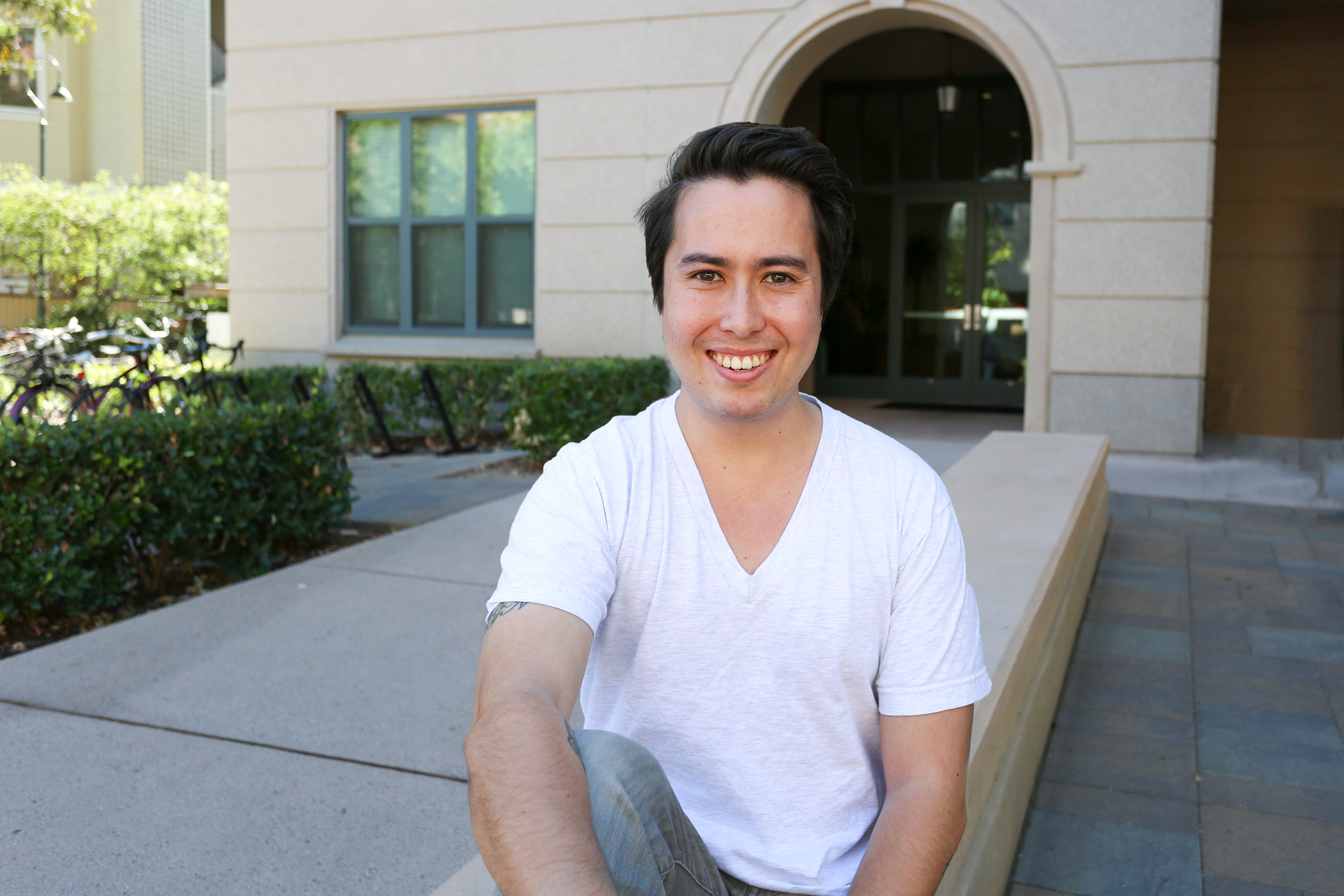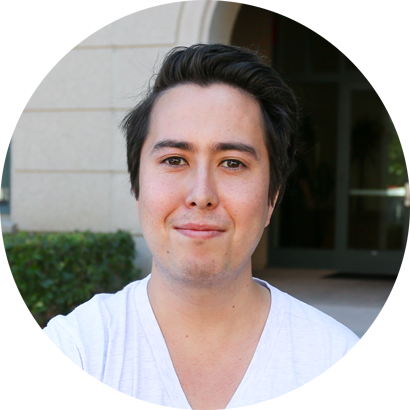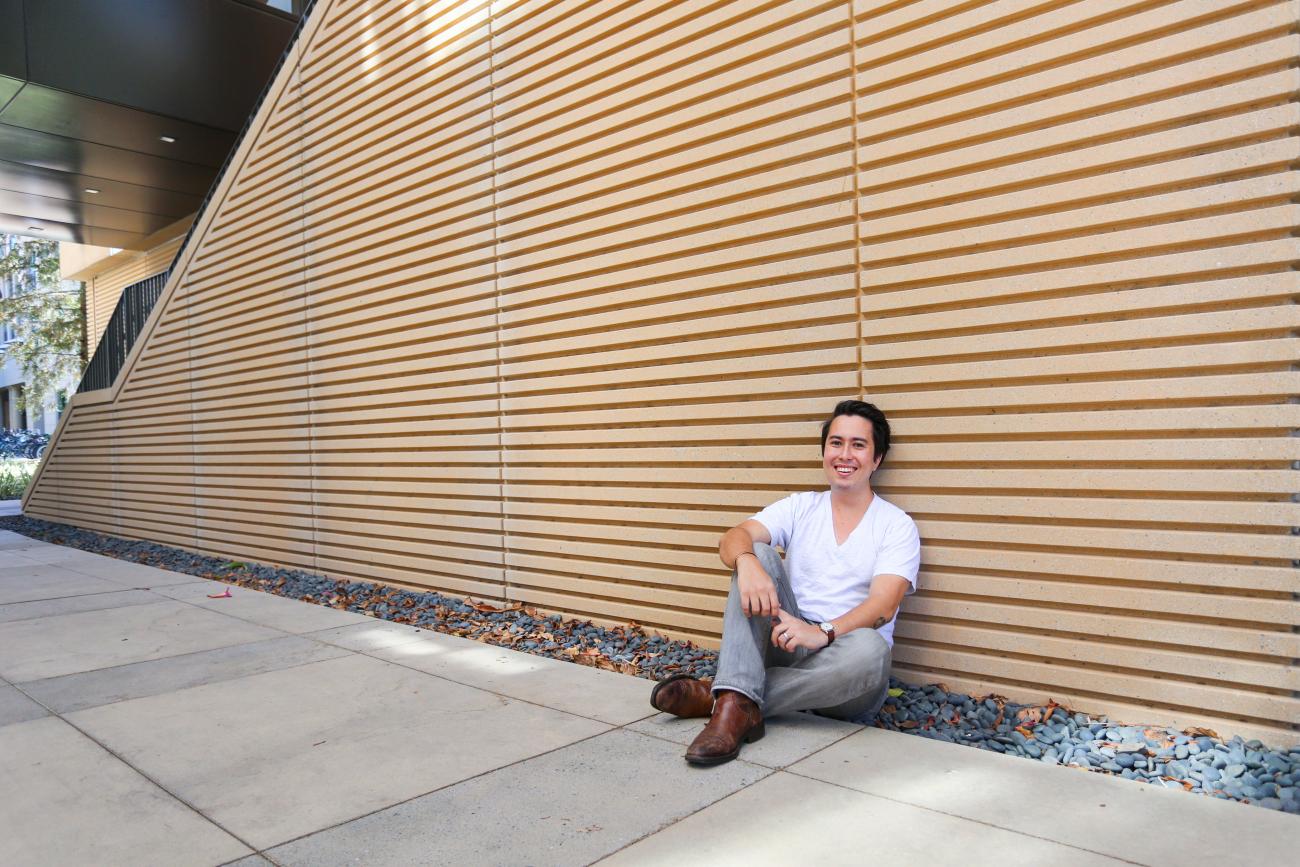
Austin Ross Dike
What were you doing prior to applying to Stanford Graduate School of Education?
I tutored and taught English at a private academy in Korea for three years. I then took a personal year, traveling Asia and the United States, visiting family and reflecting upon my Korea experience in order to figure out the next steps of my life, a process that eventually brought me to Stanford.
Why Stanford?
There were many reasons I chose Stanford. Most of all, the ICE program is the most academically rigorous, research-focused program of its kind in the world. This alone was a deciding factor and when I was admitted, I had no question that I would attend.
What are some of the aspects of ICE that impressed you?
The most unusual (and special) aspect of ICE is its MA paper requirement, in which students conduct their own original research (and in some cases, data collection). It is an extremely intensive yearlong project that is comprised mostly of independent work, besides a weekly research seminar and ongoing support from our director, advisor and TAs. Students get to pursue any topic in comparative education they wish (within reason) and in such ways it may be likened to a “mini-dissertation.” Each aspect of research (proposing a question, surveying literature, consulting theory, gathering or collecting data, analyzing data and demonstrating findings) is broken down into meticulous detail, outlined and written and rewritten multiple times, which all culminates into a final product that is as close to perfection as we can achieve within one year. No other international education program has a capstone project or paper that is anywhere close to the ICE MA paper in terms of breadth and intensity.
Describe the students in your cohort.
Diverse, cosmopolitan, adventurous, inspirational, curious, kind, relentless, supportive, impassioned, open.
What did you do for fun while a student at the GSE?
My go-to would be a picnic [at Stanford] with my wife: cheese, crackers, meat, wine, music, sun and palm trees. Other times, basketball at one of the many outdoor courts on campus was a more energetic release. One day of each weekend, typically Saturday, I would reserve to do absolutely no work, and either explore San Francisco, go on a hike, or just kick back.
Any tips for incoming students to help them get the most from their time at Stanford?
Take advantage of the amount of one-on-one attention and support Stanford GSE professors and TAs offer — this is rare at large, elite research universities and absolutely invaluable. Enjoy the campus as much as possible — outdoor recreation, events and talks, libraries, gyms, faculty presentations, parties, friends, etc. It is easy to let the year slip by having not taken advantage of these things. Also, prioritize your assignments: Choose those that mean the most to you and devote most of your energy towards them (for me, this meant devoting much of my energy to my MA paper, as well as certain classes that fascinated me). This will leave you with more time to enjoy life while you are here and will also result in a more personal and special feeling of accomplishment.
What advice do you have for prospective students on the application process?
Simple — take your time, be honest!

What drew you to the field of education?
I never studied education in college and had no inclination to pursue the field at that time. I was, however, fascinated with behavioral and cognitive sciences, which perhaps subtly motivated me to study education eventually. The biggest impetus though was my experience teaching in Korea (a job I stumbled upon due to my personal life and not my academic pursuits), which both emotionally moved me and academically intrigued me, inspiring within me a curiosity to learn more about how societies’ children internalize knowledge, beliefs and customs, especially within a cross-cultural, global context.
Is there anyone who inspired you to pursue advanced study in the field?
My students, with their incessant brightness, creativity, curiosity and cultural flexibility, inspired me. Otherwise, before ever formally “learning” about education, reading John Dewey demonstrated to me the value and complexity of education as an intellectual practice.
What are your career plans?
I’m currently looking for jobs related to global education programs and/or education research in the San Francisco Bay Area.
What memories stand out for you from your year at Stanford?
My first talk during a directed reading with my advisor, Francisco Ramirez, was especially memorable. I had this feeling of awe at how our conversation danced around topics of education, globalization, world society theory, Korea, marriage, family, university, language and much more — completely unstructured, but also profound. I experienced how the best learning often does not happen in classrooms, but rather conversation.
The most powerful moment was submitting the final copy of my MA paper. It was an overwhelming feeling of accomplishment and bittersweet release, where I truly felt how proud I was of the work I had produced, yet sad to see this process come to a conclusion. Prior to this, I had never spent so much time on one single piece of work.

